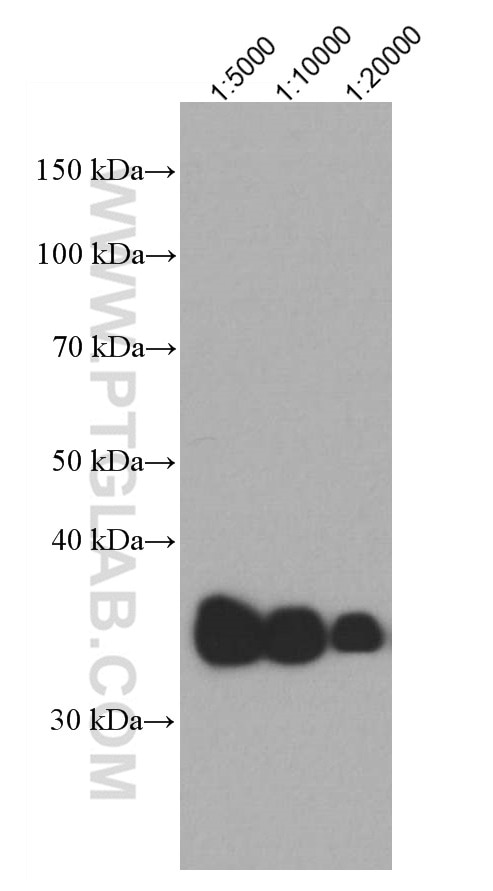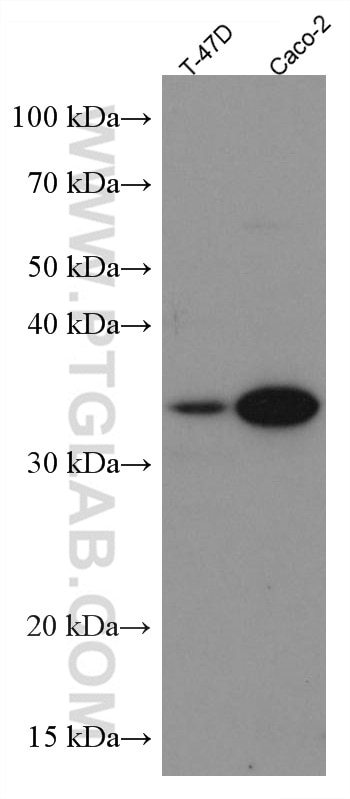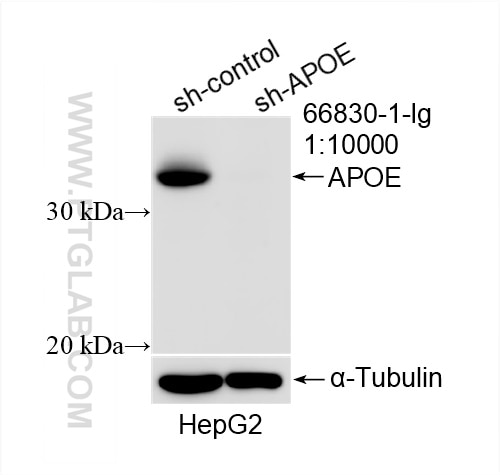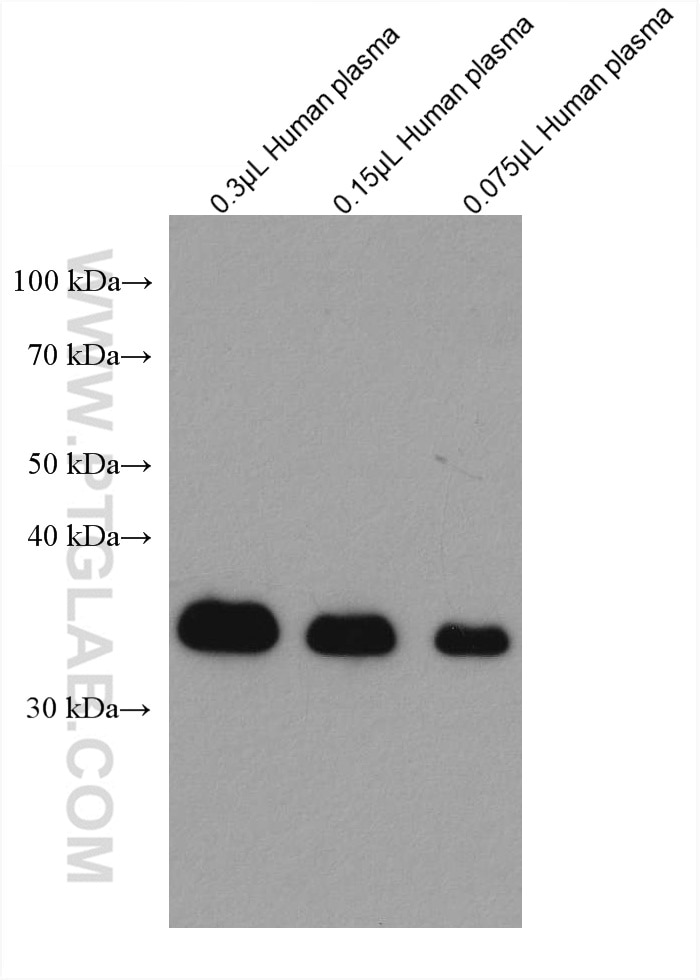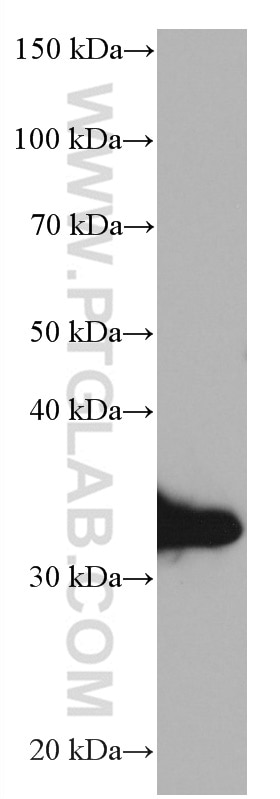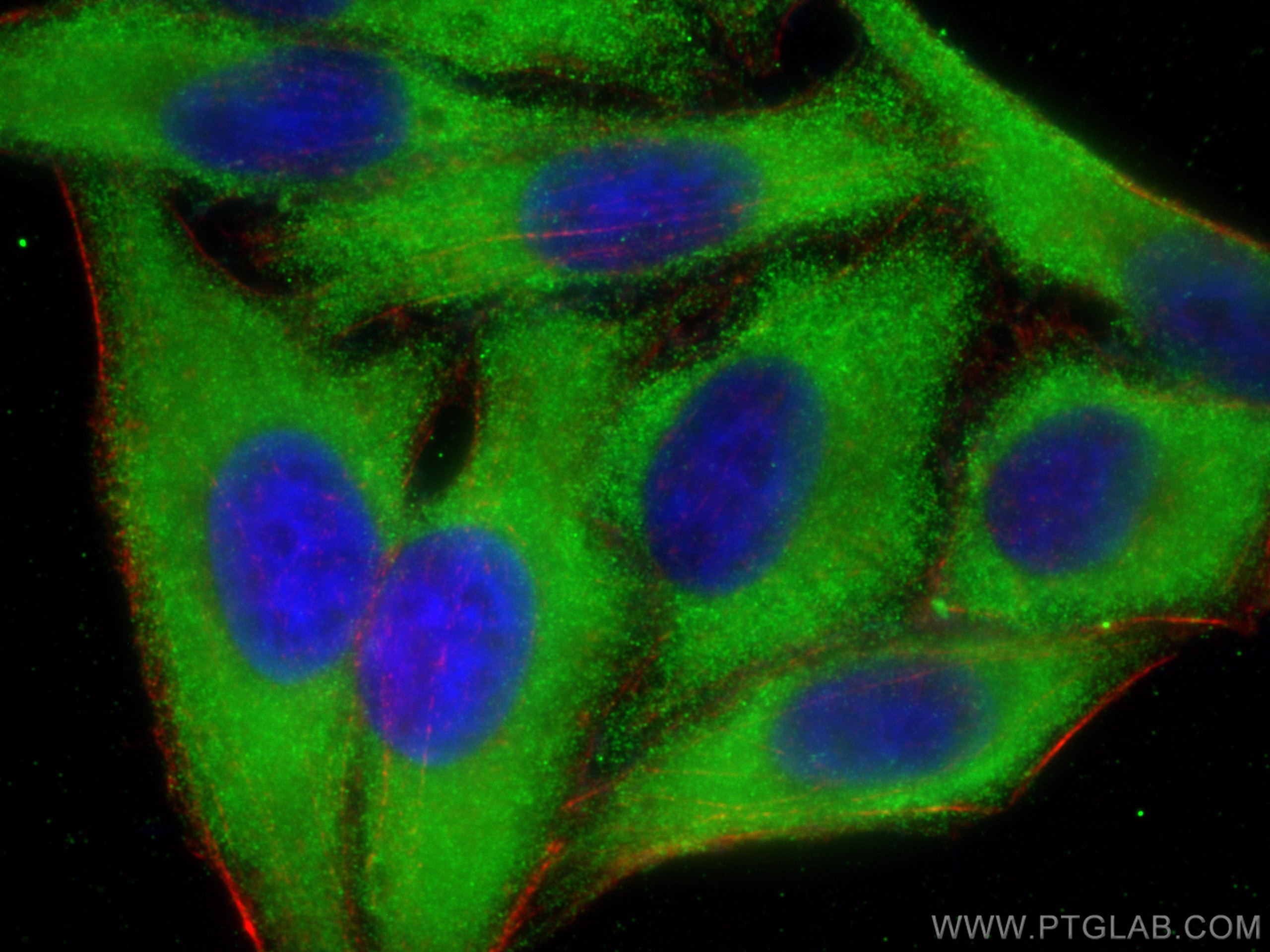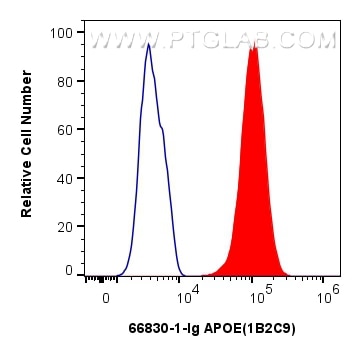- Phare
- Validé par KD/KO
Anticorps Monoclonal anti-APOE
APOE Monoclonal Antibody for WB, IF/ICC, FC (Intra), ELISA
Hôte / Isotype
Mouse / IgG1
Réactivité testée
Humain
Applications
WB, IF/ICC, FC (Intra), ELISA
Conjugaison
Non conjugué
CloneNo.
1B2C9
N° de cat : 66830-1-PBS
Synonymes
Galerie de données de validation
Informations sur le produit
66830-1-PBS cible APOE dans les applications de WB, IF/ICC, FC (Intra), ELISA et montre une réactivité avec des échantillons Humain
| Réactivité | Humain |
| Hôte / Isotype | Mouse / IgG1 |
| Clonalité | Monoclonal |
| Type | Anticorps |
| Immunogène | APOE Protéine recombinante Ag28186 |
| Nom complet | Apolipoprotein E |
| Masse moléculaire calculée | 36 kDa |
| Poids moléculaire observé | 34-36 kDa |
| Numéro d’acquisition GenBank | BC003557 |
| Symbole du gène | APOE |
| Identification du gène (NCBI) | 348 |
| Conjugaison | Non conjugué |
| Forme | Liquide |
| Méthode de purification | Purification par protéine G |
| Tampon de stockage | PBS only |
| Conditions de stockage | Store at -80°C. 20ul contiennent 0,1% de BSA. |
Informations générales
The apolipoprotein E (APOE) is a 299-amino acid polypeptide that mediates the binding, internalization, and catabolism of lipoprotein particles, and also serve as a ligand for the LDL (APO B/E) receptor and for the specific APOE receptor (chylomicron remnant) of hepatic tissues. The very strong association of the APOE ɛ4 allele with AD risk and its role in the accumulation of amyloid β in brains of people and animal models solidify the biological relevance of APOE isoforms but do not provide mechanistic insight.
